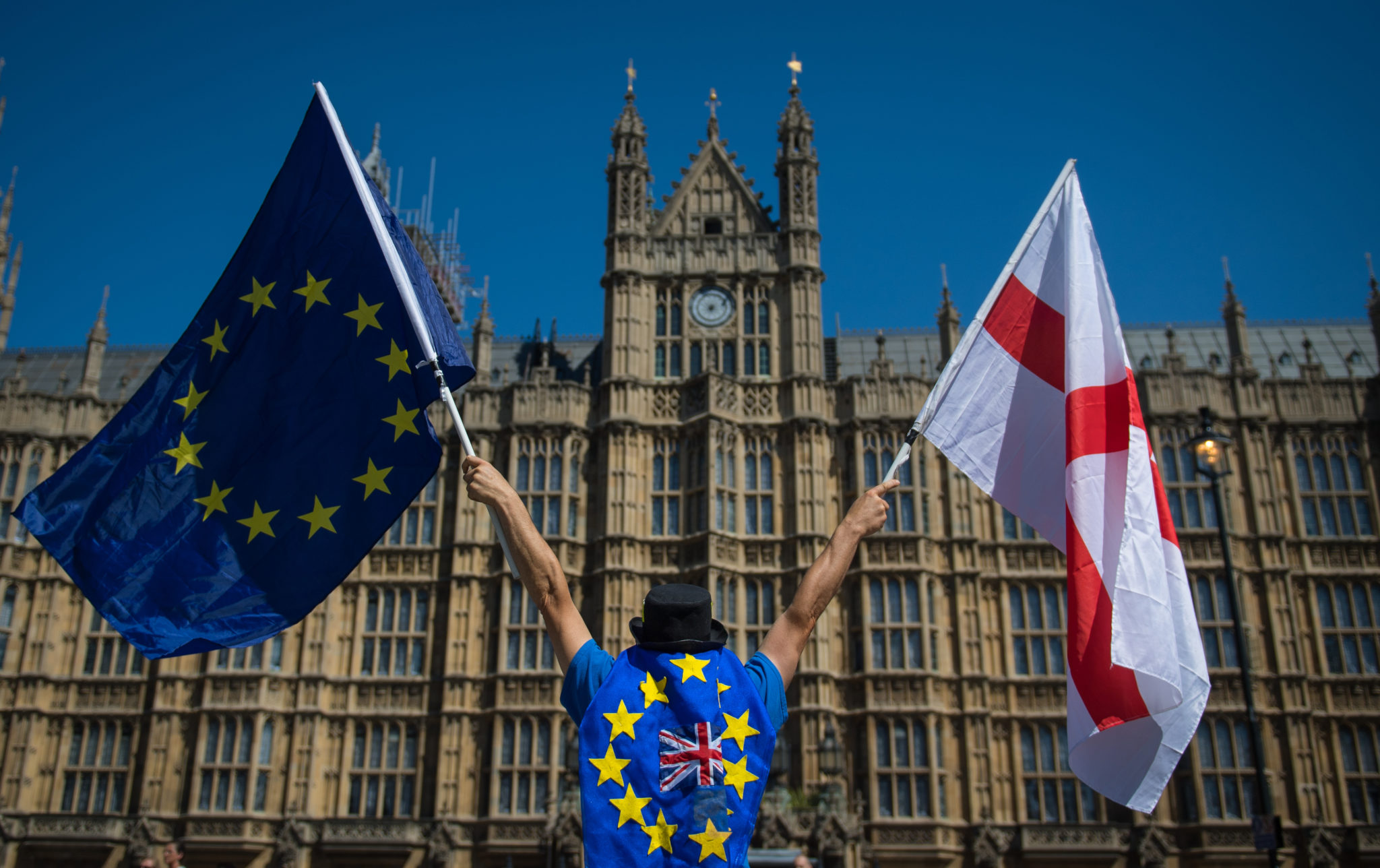Ending Daylight Savings Time is simply not worth the effort in Ireland, a Trinity Professor has said.
The clocks will fall back once again this Sunday, technically offering people across Europe an extra hour of sleep.
The change will also mean brighter mornings and brighter evenings for people travelling to school and office-hour jobs in the coming weeks – however it is not something that is welcomed by all.
The practice has been subject to intense debate in recent years – with the European Parliament voting to get rid of the daylight savings system in 2021.
The plan was eventually scrapped when it failed to get unanimous backing at the European Council of EU leaders.
 File photo dated 25/06/18 of an anti-Brexit demonstrator holding European Union and England flags outside the Houses of Parliament, in central London. The UK and EU have reached a post-Brexit trade agreement.
File photo dated 25/06/18 of an anti-Brexit demonstrator holding European Union and England flags outside the Houses of Parliament, in central London. The UK and EU have reached a post-Brexit trade agreement.Since Brexit, meanwhile, the UK is no longer obligated to follow European rules – and the Irish Government has made it clear that we will not be making any change that puts Dublin in a different time zone to Belfast.
This week, however, Irish MEP Seán Kelly vowed to “have another go” at ending daylight savings.
On Newstalk Breakfast today, Trinity Economics Professor John Fitzgerald said he’s ‘inclined to leave the system the way it is’ to keep things simple.
“It would be kind of complicated if you're going crossing over from Lifford to Strabane and everybody's had their breakfast in Strabane and they haven't got out of bed in Lifford,” he said.
Changing the time system would also add no energy benefits, Prof Fitzgerald continued.
“We looked at this in 2014 and found actually - you'd have to move Irish time out into the Atlantic another hour if you wanted to save any energy,” he said.
History
Prof Fitzgerald outlined that the current system had gone through many changes over time.
“In 1880 a bill was passed to have Irish time and British time - and Irish time was actually 28 minutes and 21 seconds different from British time," he said.
“Then 1916 came along and it caused chaos with the British Army officers arriving into Dún Laoghaire off the boat heading up to the GPO to take on the Rising - and their watches weren't adjusted.
“So at the end of 1916 we became part of British time."
 A dog greets its owners after they had a swim in the Irish Sea during sunrise on Summer Solstice. Image: Jonathan Porter / Alamy
A dog greets its owners after they had a swim in the Irish Sea during sunrise on Summer Solstice. Image: Jonathan Porter / AlamyIreland was then introduced to summer time when it joined the EU, Prof Fitzgerald explained.
“We tried an experiment in 1968 along with Britain, where we just had summer time all year round," he said.
“This was before joining the EU, so the time in Ireland it would [have been] the same half of the year as in Paris or in Brussels, but that didn't find favour.”
Daylight Savings
Daylight savings was first introduced in 1916 Germany as an energy-saving measure during World War I.
Britain introduced the change the same year – and went further in Ireland, abolishing Dublin Mean Time (DMT), which was 25 minutes behind London, and synchronising Ireland and Britain in the same time zone for the first time.
As a result, when British clocks went back by an hour in winter 1916, Irish clocks went back by 35 minutes and have remained in-sync with Britain ever since.
The US introduced the measure in 1918 and now, around one-third of the world's countries follow some form of daylight savings system.
Research has previously shown that daylight savings has negative health impacts.
Overall, Prof Fitzgerald said any changes would not be worth the effort, and that we are better off leaving the system as it is.
Listen back here:









